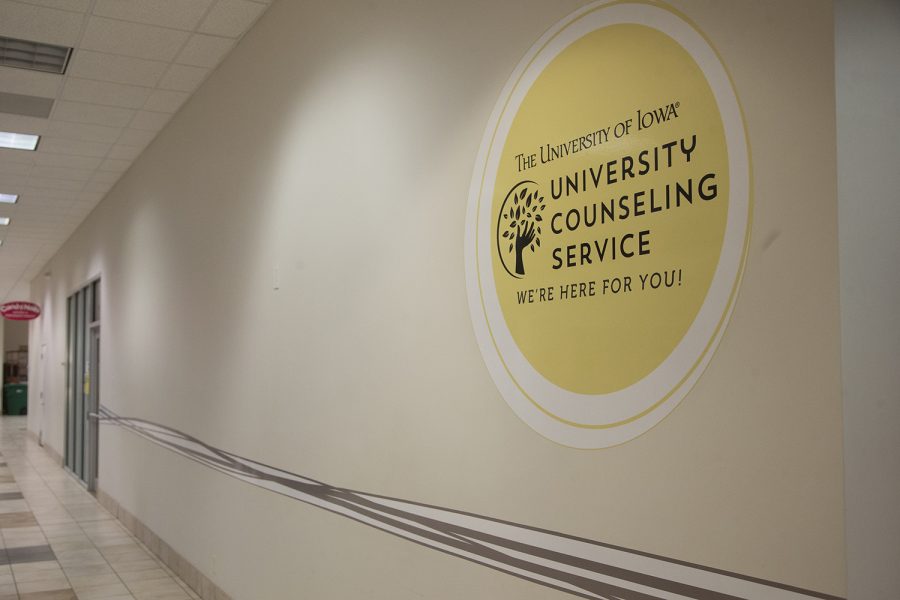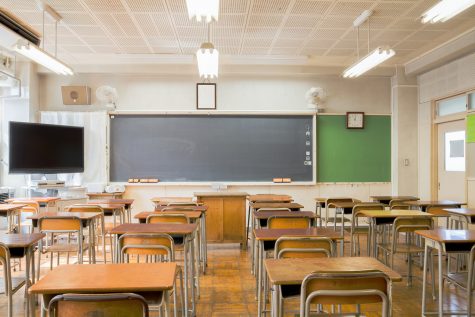Opinion | College students are struggling more than you think
Despite accounts from the University of Iowa counseling services, college students are more stressed out and under pressure than ever before.
The University Counseling Services office is seen in the Old Capital Mall on Monday, February 17, 2020.
October 8, 2020
Recent data from the University of Iowa Counseling Services Center reported no significant increase in mental-health symptomatology, despite lifestyle changes amid the COVID-19.
However, this doesn’t mean mental health isn’t a concern. In fact, recent studies have shown that mental health is an issue now more than ever. The National Center for Biotechnology Information surveyed 195 students at a large, public university, and found 71 percent of students reported that they have had an increase in stress and anxiety because of COVID-19.
So why is there no increase in reports from UI counseling services? One theory — students are so stressed and overwhelmed that they don’t have time to reach out and make mental health a priority.
As a sophomore who is triple majoring in journalism, political science, and music, I am struggling. On top of triple majoring, I’m a columnist and designer at The Daily Iowan as well as a member of the UI Symphony Orchestra.
To say college students are busy is an understatement. My days are packed with assignments, studying, practicing, writing and designing. With the majority of my classes online, I have found that I have to teach myself five college-level courses. Not only that, professors have doubled the workload with the transition to an online format for the fall semester.
Professors need to have empathy, especially when most of us have extracurriculars and jobs on top of schoolwork. With midterms just around the corner, the amount of stress has only increased from the beginning of the year. We cannot keep up with the responsibility of teaching ourselves new material each week while attempting to complete assignments that are sometimes just busywork.
Rachel Stoakes, a sophomore majoring in therapeutic recreation and pre-occupational therapy has also felt the effects of COVID-19 impacting her mental health and schoolwork.
“Last year was manageable stress,” Stoakes said. “This year I find myself spending six to eight hours a day on schoolwork and an increase in workload because most of my classes are online. Even after dropping a class hasn’t made a major difference. I don’t feel like I ever have a second to catch my breath because I’m stressed 24/7 or do the things I love like workout let alone have time take care of my mental health.”
Many students are also concerned for their health and safety as well as their family’s. According to the survey previously mentioned, 91 percent of students have had an increased amount of fear for their own and a loved one’s health. It’s hard to study for your chemistry midterm when you’re worried about your mom who’s gone back to work as your hometown has a spike in cases.
We are always told to take time for ourselves and to have a healthy balance. We are also encouraged to seek help if we’re experiencing mental-health concerns. Personally, I have pushed my mental health to the side because I am exhausted after staying up until 2 a.m. working on a paper that had to be pushed to the very last minute.
I’ll be honest — my mental health isn’t the greatest. I don’t think anyone’s is. The university and professors shouldn’t be looking at the data reports as a positive sign. I am telling you right now — we are struggling more than we have ever. We are suffering and need less busywork and more empathy and compassion.
Columns reflect the opinions of the authors and are not necessarily those of the Editorial Board, The Daily Iowan, or other organizations in which the author may be involved.

















